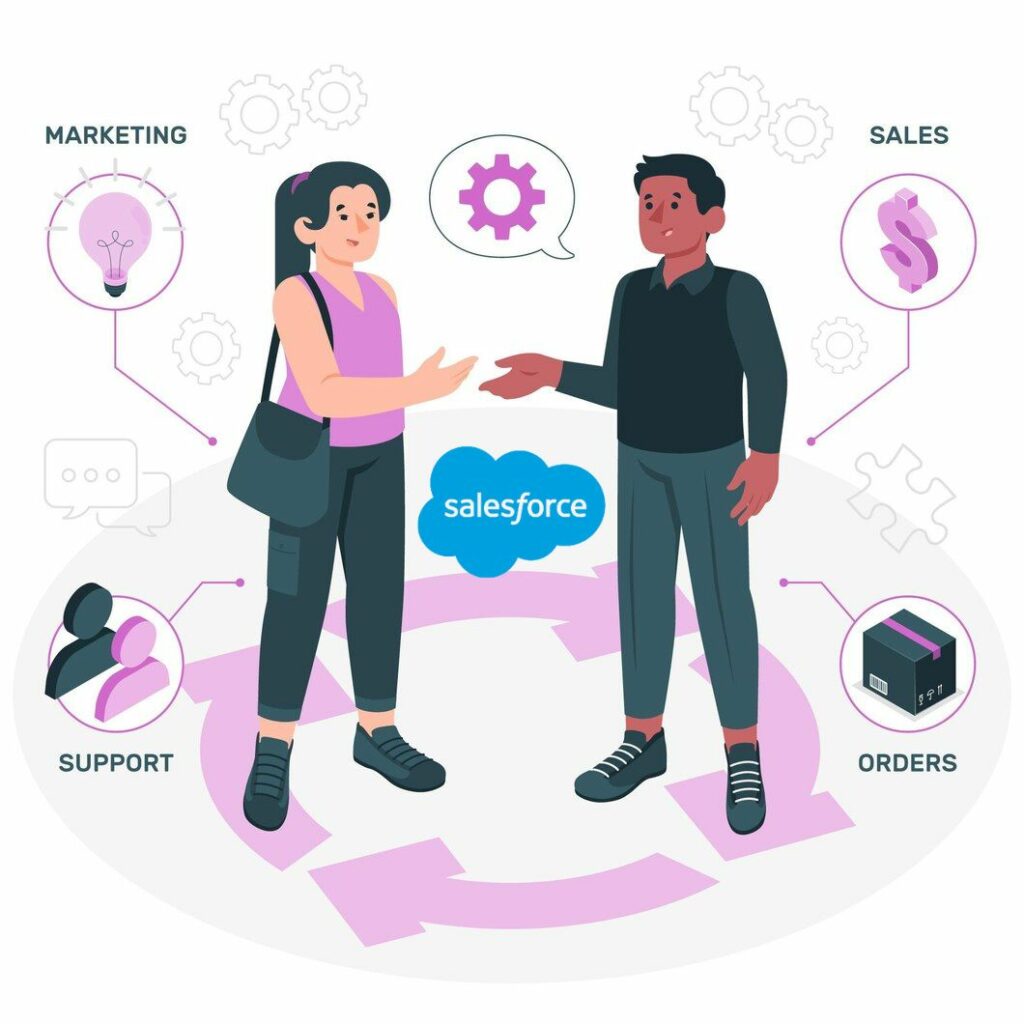NetSuite OneWorld: Resolving your multi-business management needs
NetSuite OneWorld: Resolving your multi-business management needs
Operating a business requires you to be on your toes every time and everywhere. It gets challenging when you have several subsidiaries, franchises, or branches to operate. Now imagine the case when you have these units operating in different countries.
Managing a multi-entity enterprise’s business becomes easy and smooth with technology solutions.
These technology solutions are Enterprise Resource Planning (ERP) systems. NetSuite OneWorld is the top choice of multinational corporations for global business management. It connects the business processes of several units in different countries. It gives you visibility of entire operations across borders to make management effortless.
We will talk about how NetSuite OneWorld makes your multi-enterprise business management seamless. But first, let’s look at the key challenges these businesses face.
Challenges of multi-unit businesses
Use of different languages
A business language issue when establishing a base in other countries.
You may find problems in the following:
- Communication of product messaging in different languages to avoid hurting local sentiments.
- Coordination between team members sitting in different offices across the border.
- You create documents and data in one language. But sharing with other team members in another country needs translation.
You need a solution that bridges these gaps daily. Translating information in documents from one language to another before its use must not be manual. Manual translation leads to errors and causes a waste of employees’ time and effort. The technology solution must be able to bridge communication barriers and run all operations with ease.
Use of different currencies
Your revenues, profits, expenses, and every account are expressed in a currency. With offices in different countries, you express data for every entity in local currency. The problem comes at the time of consolidation of financial data.
Since you express these in different currencies for different business units, you must convert them to a standard currency using exchange rates. The fluctuating exchange rates make the work difficult.
Moreover, businesses need to forecast local earnings and profits for every unit. But calculations become challenging if you buy raw materials from one geography and sell finished products in another. The difference in currencies and fluctuating exchange rates affect your calculations and forecasts.
You need a solution that manages these currency differences without affecting the operations. The use of different currencies must not affect your financial accounting and payments. Real-time currency conversion with continuous updates on exchange rates is essential.
Diverse taxation rules
Complying with taxation requirements is crucial for any business. And when you have international operations, it becomes a bit more complicated. You may be liable for corporation tax in some countries while tax-exempt in a few.
Tax compliance is significantly challenging for the multi-entity enterprise because of the following:
- Diverse tax systems
- Different rates
- Varied methods of calculations
Tax treaties between countries affect your tax liabilities and calculations. Knowledge of these also helps to avoid double tax payments.
You need a scalable solution to use applicable tax rates and calculate tax liability. The solution must generate tax reports for better compliance. For precision, these cross-border or local buy-and-sell transaction calculations must happen in real-time.
Distinct financial and accounting requirements
The use of different accounting standards is a concern for international businesses. An international business’s accounting function becomes challenging due to variances in the:
- Compliance requirements
- The base of accounting
- Calculation or consideration methods for accounts
When one subsidiary generates a purchase order, and the other generates the related sales order, discrepancies occur in financial reporting. It disturbs the invoicing and payment for the transaction.
You also need to map the subsidiary-level accounts with the appropriate parent-level account. That means you need to combine siloed data of several subsidiaries. You need to make a manual effort to calculate and find missing information. Data mapping from one account to another is time-taking and burdensome.
You need a technology solution to accommodate variances in accounting and reporting rules. You need the accounting of each transaction at the local level in the applicable currency. These accounts must also be present in the parent entity’s consolidated figures. It requires you to consider the applicable accounting standards for headquarters, regional, and local levels.
The aim is to achieve compiled information on every chart of accounts. These include accounts receivables, accounts payables, inventory, and other data.
The account closing procedure is challenging when business units operate in different countries. Your technology solution must make it seamless, accurate, and faster. The outcome must be an accurate chart of accounts and reports.
Collaboration and communication
Many teams work on different aspects of a project in multi-entity enterprises. It is a delicate situation when these teams work in different time zones in different countries. It disturbs the communication and collaboration between teams.
They must stay up-to-date with the latest project updates and move ahead carefully. You need a unified ERP system connecting all processes. It must create standard work procedures and make them uniform across all entities. Consistency of workflows and procedures across subsidiaries and branches leads to reliable results. Also, the administering of projects becomes more straightforward and less costly.
Moreover, you need consistent data standards and formats to avoid confusion. The ERP system must reduce your administering costs and time, helping you increase efficiency. All these features can improve collaboration between teams in different locations.
Pricing strategies
Determining the pricing of your product or service is a critical concern for MNCs. You need to stay competitive in every location and still earn profits. Competitors’ pricing in local markets is a great help, but you still need to calculate company-specific factors.
The use of different currencies affects product/service pricing in different jurisdictions. Another problem is fluctuations in the country’s exchange rates and inflation rates. You need to incorporate the changes in these two factors in your product pricing.
Inflation rates affect labour costs, materials and equipment, and third-party services. Currency exchange rates affect every buy and sell transaction. So, you must keep a close eye on both these aspects to determine your product price in different locations at different times.

How NetSuite OneWorld helps?
The above-discussed problems exist for multi-entity enterprises in different countries. A basic system or technology cannot solve them with their primary capabilities. Even if you achieve these capabilities, it causes stress and time, and the outcome is a real mess.
The key is to use an advanced cloud-based business management solution. Such a solution will help you achieve financial consolidation and effective reporting. NetSuite OneWorld is a robust solution with the competencies to resolve these issues for your business.
Besides, there are industry-specific challenges for entities operating in global markets. But you always have technology and consultants to help you tread the new path. Like the NetSuite OneWorld, which helps multinational corporations with smooth operations.
NetSuite OneWorld’s features and capabilities include the following:
Consolidated accounting and reporting
You can manage consolidated accounting and report with the NetSuite OneWorld solution. You can adjust the differences in currency, taxes, and language at the local level. The solution helps you compile them at the parent entity level to generate consolidated reports. Thus, you need not waste time and money in the manual reconciliation and consolidation of transactions.
Deep visibility of operations
It is a single unified platform giving you visibility into the consolidated operations. You can also drill down the performance results business unit-wise. You can track all your customers, suppliers, and employees globally. Role-based dashboards give you a peek into total entity performance and each unit or subsidiary level. Such detailed insights and analytics help you in decision-making.
Better compliance
NetSuite OneWorld allows location-based tax, accounting, and regulatory settings. These help you stay ahead of compliance deadlines and manage them on time. Thus, you can achieve compliance with taxation, accounting, and regulatory laws.
Business health check
When you click on a business unit, you get the view in the local currency and language to give you the exact picture. You can assess the health of every business unit from one place with the help of dashboard views. Also, these numbers are up-to-date, accurate, and available in real time. Thus, NetSuite OneWorld gives you a complete picture of your business unit’s health.
Restructuring support
NetSuite supports you at every step of the restructuring of your business – be it acquisition, spin-off, or global expansion. You can create separate entities and supervise their total and unit-wise performance. It improves your reporting features and makes your global operations seamless.
Seamless inter-company transaction
NetSuite OneWorld manages calculations for all your inter-company transactions like buying and selling. It also allocates human resources, timelines, and costs for different projects. The solution also brings about inventory transfer and supply chain management effectively.
Top-class auditing
The built-in analytics and automated workflows help document information and generate detailed reports. These reports and documentation ensure the fulfilment of audit requirements. You get consistent reporting, consolidated view, and summarised reports from NetSuite OneWorld. Thus, it helps all business units to follow all local and global rules.
Streamlined operations
NetSuite OneWorld streamlines your operations with the following features:
- Web-based user interface
- Cloud-based solution
- Anytime and anywhere connectivity
- Web-based computing
- Automatic data backups
- Real-time data visibility
All these features make processes more efficient, productive, and outcome-oriented.
Integrated business functions
NetSuite OneWorld integrates different business functions of human resources, inventory, accounting, supply chain, customer relationship, eCommerce, and analytics. Thus, it gives you a complete and summarised picture of organisational performance. You can drill down these performance metrics to business unit-wise.
What is the role of Cloudiotech?
Cloudiotech is a distinguished provider of NetSuite services in the UAE and the USA. We are a NetSuite partner, providing businesses with customised NetSuite services, including implementation, NetSuite integration, customisation, and NetSuite training services.
With NetSuite OneWorld, Cloudiotech helps you achieve efficiencies for your multinational business. We manage your multi-company’s taxation, regulatory, and accounting compliance at global and local levels. You have access to real-time performance reports needed to achieve consistency in operations worldwide.
Prepare your business for the interconnected market with a global business management solution
Let us schedule a meeting for the NetSuite OneWorld demo now!




